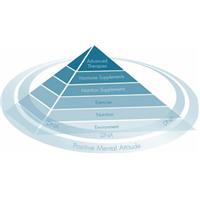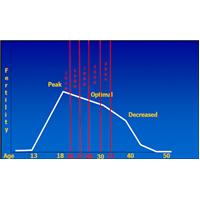Careers and Conception – The race against time
David Alpert, founder of the International Institute for Anti-Ageing (iiaa) was recently invited to present a lecture for the Newborn and Maternity Forum at the Royal Society of Medicine in London.
The theme of the event was the trend by society to delay motherhood, balanced against the problem of biology that has not kept up with this trend. David Alpert presented iiaa evidence-based research to show that certain lifestyle changes and simple actions can maximise a womans fertility potential and help her to conceive at a later age.
The trend towards women putting career before family and choosing to have their children later in life may mean mothers are past the period of optimal fertility and into the period of reduced fertility by the time they decide ton start a family. This will inevitably find more and more women facing difficulties conceiving. The average age of motherhood has increased by 5 years since 1970 and over the last 10 years the number of women conceiving over the age of 40 has doubled.
THE BIOLOGICAL CLOCK
Women are born with a finite number of egg follicles in their ovaries and the iiaa anti-ageing fertility approach looks at reducing factors that decrease fertility and increasing factors that increase fertility and health of remaining eggs in the ovaries.
For example, fertility can be positively affected by exercise and nutrition (eating a low GI diet can increase fertility) whereas environmental factors can impede and reduce fertility (stress, the presence of chemicals and heavy metals as well as the huge rise in sexually transmitted diseases).
Unfortunately the biggest obstacle for women over 35 is their fertility age denoted by the quality and quantity of eggs remaining in her ovaries. On average, a woman hits her peak fertility between the age of 18-30 and after 35 fertility starts to decrease quite sharply.
Applying the iiaa anti-ageing pyramid to your lifestyle can make a difference when it comes to conception:
Environment/Social : factors that contribute to unhealthy environment
Smoking
Endocrine Disrupting Pollutants
Sexually Transmitted Diseases:
Increase in gonorrhoea by 46%
Increase in Chlamydia by 116%
Nutrition: a high GI intake, increase in trans fats and high animal proteins are more likely to cause fertility problems. Studies have also shown that those with the highest GI intake are 92% more likely to have ovulatory fertility problems.
Exercise: Excessive weight decreases fertility
Moderate exercise increases fertility
Nutritional Supplements: Supplements can increase fertility as food has significantly dropped in nutritional value over the last 50 years. Certain minerals such as Zinc and Selenium are essential for healthy reproductive systems.
Positive Mental Attitude: According to Professor Sarah Berga, Emory University Atlanta, many women suffer from sub-clinical forms of stress and fail to ovulate properly. A study showed that 80% on Cognitive Behavioural Therapy (CBT) started to ovulate again normally as opposed to only 25% on randomised control.
Many women can improve the health of their reproductive systems, and thereby their conception potential as they get older, by making key lifestyle and diet choices.


